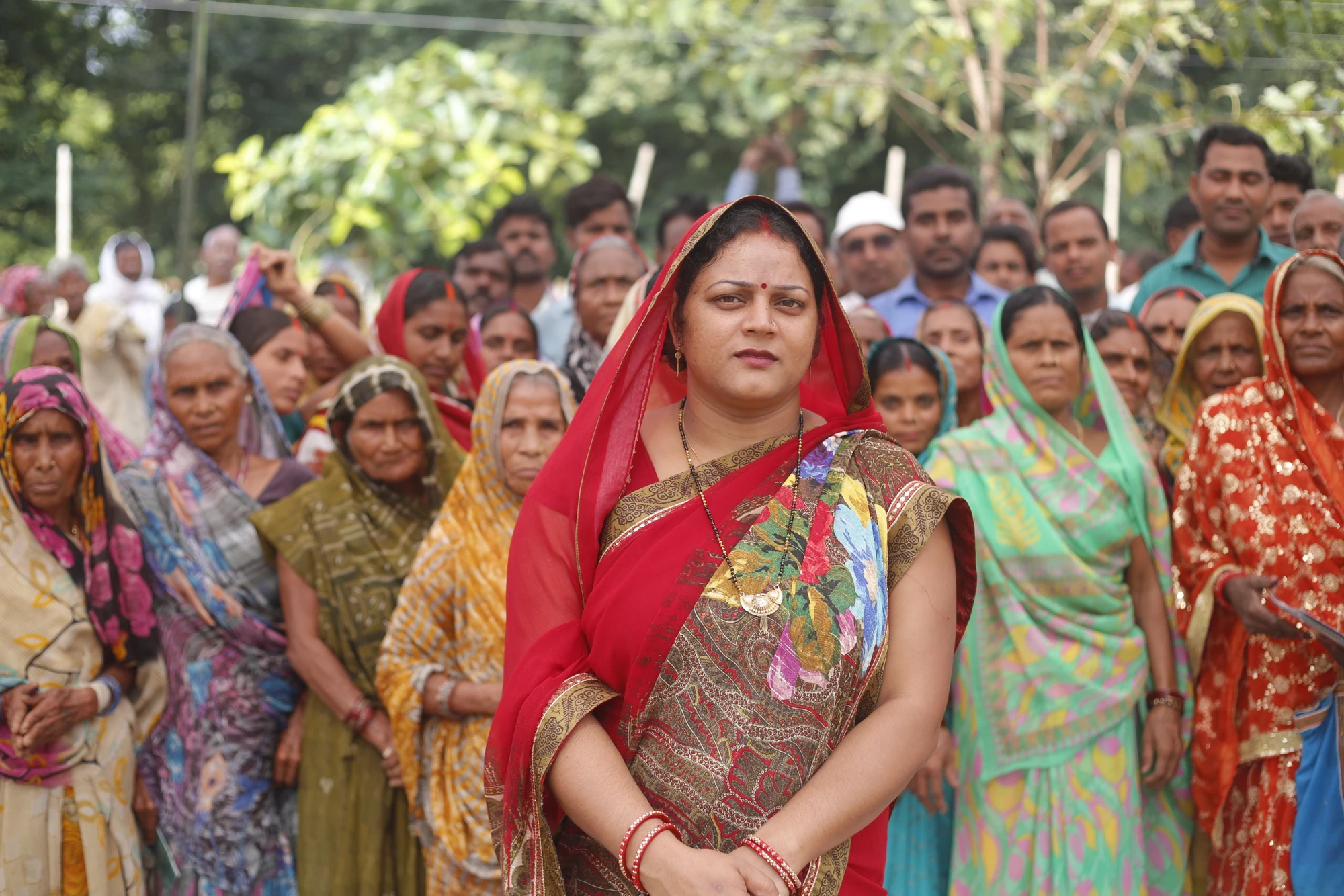Women are agents of change in Bihar, India. Photo: World Bank
Empowering women in a society is essentially a process of uplifting the economic, social and political status of women and the underprivileged. It involves building a society wherein women can breathe without the fear of oppression, exploitation, apprehension, discrimination, and a general feeling of ill-treatment that symbolized a woman in a traditional male-dominated society like the one in India.
With the implementation of gender quotas since India’s 73rd and 74th Constitutional Amendment Acts, the percentage of women in political activities at the local level has risen from 4-5% to about 35-40%. Reserving one-third of seats for women in the elected bodies of rural local governments in India has unleashed a silent revolution.
For the first time, rural women began to participate in local governance to improve their status and acquire a decisive say in matters crucial to their livelihoods. This decision to ensure the participation of women in local government is perhaps the best innovation in a grassroots democracy , contributing to improving the well-being of rural women.
Control over local government resources and the collective power of women have helped women discover their own self-respect and confidence. In the recent discourse on women empowerment in the 62nd session of the Commission on Status of Women, the government of India has said gender equality and emancipation of rural women is a key driver of inclusive growth.
The discourse on women's empowerment has progressed from viewing women as recipients of welfare benefits to engaging them as active agents of change. However, women continue to face multiple challenges in terms of asymmetrical division of labor, rights, and assets which render them vulnerable to discrimination and violence.
Empowering processes can fall short of promises if institutional spaces such as fully functional local government offices with adequate resources and other basics are not provided by the government at the local level. These offices are essential enablers which help build the trust of the local citizenry in the government machinery. In these spaces, women as elected representatives acquire skills, confidence, and capacities to effectively perform their functions and duties. They learn to articulate their demands, voice their concerns and mobilize resources and assistance in a secure and safe environment.
The Bihar Panchayat Strengthening Project in India, which is funding the construction of local government offices at the village level, has now become a symbol of women’s emancipation and the inclusion of vulnerable peoples. The project integrated feedback and input from women in the villages in how the offices are designed and where they are located.
The World Bank-financed project ensures that these local offices are equipped with separate toilets for women; that local offices are not in a remote corner of the village and there are suitable facilities in terms of accessibility, safety, and connectivity for women; that offices have electricity connections and are well lit with a boundary wall; that there is a place for young mothers to breastfeed and a meeting room for women’s self-help groups.
The whole experience of creating these local offices stands in sharp contrast to the past when the elected representatives (all men) functioned either from their homes or from limited spaces provided in schools or community centers.
In the district of Bhojpur, for example, the President of the Dawaan local government, Shushumlata, has recently made news for her proactive role in organizing the community. Shushumlata has tirelessly worked in recent years to bring women from all segments of the community to actively participate in the Gram Sabhas and Ward Sabhas (formal meetings of all adults who live in the area) and raise their concerns and motivate them to access the services delivered by the Gram Panchayat.
Today, women of the Dawaan local government participate in these meetings without prejudice or bias. They speak freely on issues of local development and feel empowered to demand services. This is a positive transformative behavioral change that has strengthened the status of women in the local area. The visible social upliftment of the marginalized in Dawaan, including the infrastructure development, has improved the implementation of the government’s development programs. This bears testimony to the commitment of the president for collective advancement towards empowerment and social justice for all.
The story of the Dawaan is just one example of the positive impact that women in leadership positions can have. Leadership requires the ability to lift people up. People like Shushumlata firmly believe in empowering those around them to live their best lives.
The lesson going forward is that there is always a premium on actions that can lead to grassroots social transformation . A forgotten institution, like the Dawaan local government that existed only on paper, is suddenly bursting with activities where women do not fear any marginalization or discrimination.
And the physical construction of simple office buildings, equipped with essential facilities, puts a dream together for rural women which is inclusive and participatory while ensuring a safe working environment with opportunities for all.



Join the Conversation